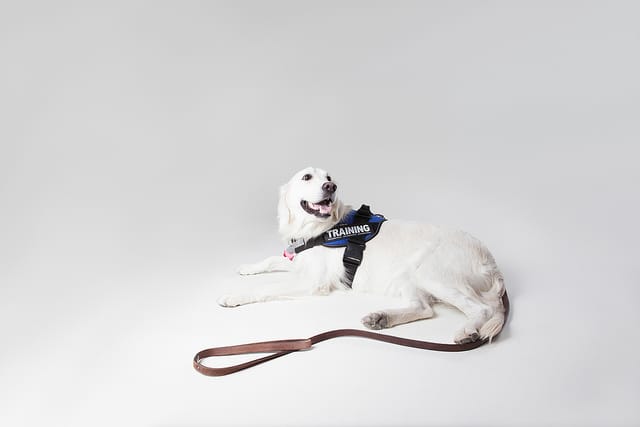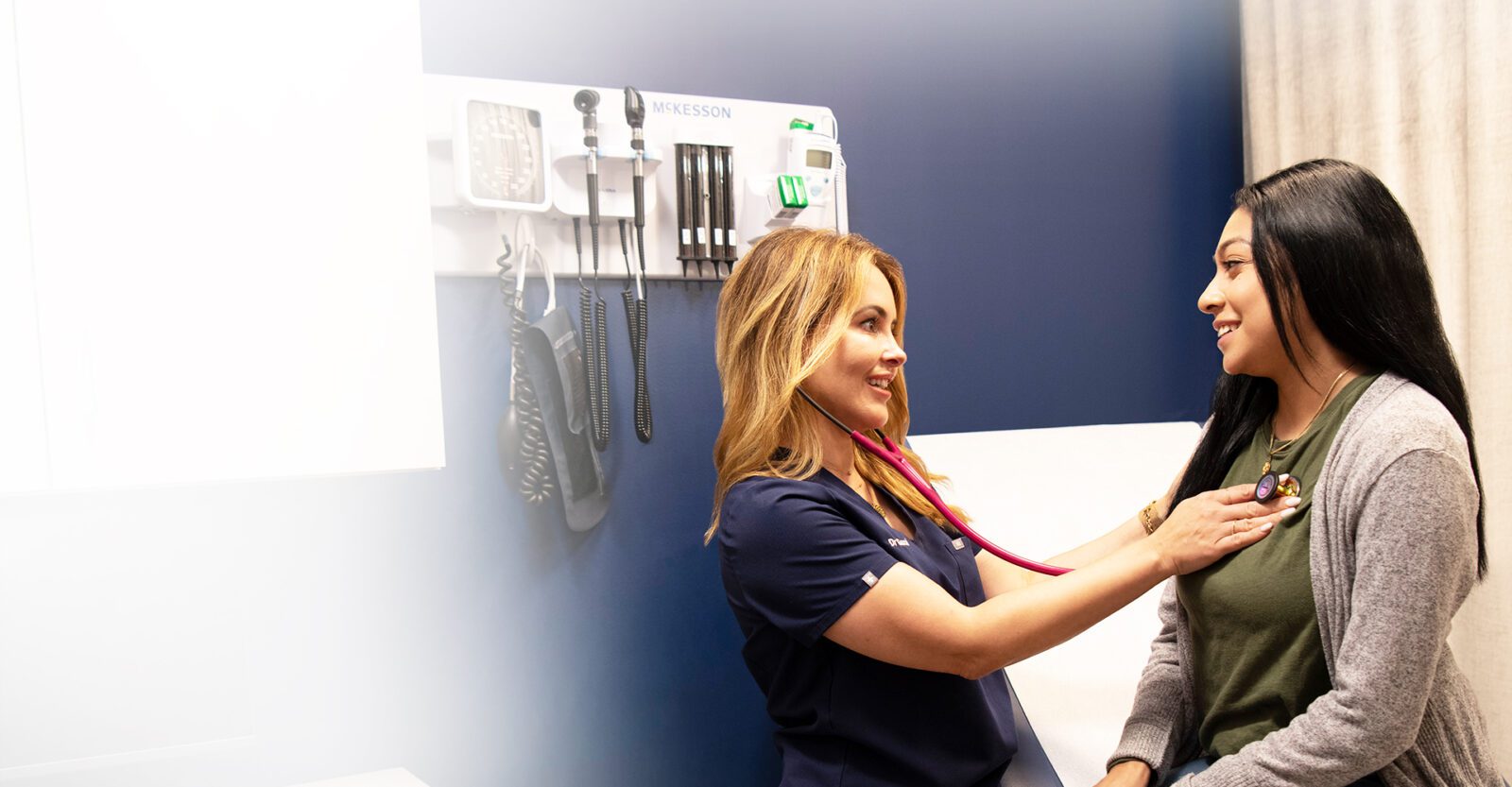Service Dogs

Service Dogs
He’s your best friend, your running partner, your middle-of-the-night cuddle buddy and second in the pecking order only to your significant other. You need him with you all the time, but some people just don’t get that he’s a crucial part of your well-being. Man’s best friend can be more than just a furry companion. Trained properly, dogs can be certified as service animals to help individuals with a variety of tasks. If you feel you have a condition that would benefit from having the support of a service animal, Innovative Express Care can help!
Pets with a vest
You can often spot a service animal in a crowd because a special harness or vest will identify it as a physical or emotional support dog.
The Americans with Disabilities Act defines a service animal as “any dog that is individually trained to do work or perform tasks for the benefit of an individual with a disability, including a physical, sensory, psychiatric, intellectual, or other mental disability.”
Beyond the official dog wardrobe, owners typically have documentation of their medical conditions or disabilities that require the service animal. Just like an “all-access pass” for a concert, this allows the dog to go in to places other animals cannot go (even places with strict “no pets” policies). This includes restaurants, stores, hotels, theaters, taxis, subways, airplanes and other venues and modes of transportation. The ADA notes business owners may not insist on proof of certification before permitting the service animal. Simply: You gotta let ‘em in.
Canines at work
Many people are only aware of “seeing eye dogs” that assist visually impaired people. Over the years, dogs have been trained to help with many other tasks. According to the International Association of Assistance Dog Partners, these may include:
- Alerting the hearing impaired to sounds
- Pulling wheelchairs
- Interrupting an owner during a trigger or psychiatric occurrence
- Alerting others when its owner is in distress
- Providing tactile stimulation for anxiety attacks, panic attacks, etc.
- Interrupting and redirecting people with OCD who may harm themselves
- Carrying medicine for the owner in a specialized backpack
Pet Wellness Academy co-founder, Dr. Katie Kangas, notes that dogs help with anxiety and depression by breaking the cycle of negativity. The animals not only provide companionship, but also give the owner a sense of purpose because dogs need to be walked, fed and cared for. In return, the dog provides the unconditional love the owner needs. So it’s not about being able to bring your dog to brunch to hang out, but about bringing your dog to brunch to help you remain calm and in control. Although dogs can’t drink mimosas and that’s the whole point of brunch, so your dog may not even want to come to brunch with you anyway.
Certainly certifiable
Any dog breed—from an akita to a whippet—can become a service animal. It must, however, be more than just healthy and well-behaved. A number of states have programs to certify service animals, but there are no defined requirements in the United States (not even by the ADA). International standards are a minimum of 120 hours training over six to 24 months. And they must spend at least 30 hours in public with distractions, surprises and “real world” issues. Registering a service animal with the United States Service Dog Registry provides proper credentials and identification. It also allows you to prove you’re not just trying to get your dog a free seat on the plane, but that you need him with you so you don’t scare the other travelers with your flight-induced panic attacks.
Flying dogs
Airports must allow service animals under the Americans with Disabilities Act. When you travel via air with your service animal, he or she will get screened by the TSA. Be prepared and understand their rules. (Sometimes you can get to the front of the line.)
Each airline has its own requirements for identifying the dog as a service animal. Pro tip: because it differs so much, always call ahead. Some airlines may require a separate note from a doctor in addition to official documentation. Anyone who gets to the gate and faces discrimination or has any issue with the airline not allowing their dog to board should call the real-time hotline for the Aviation Consumer Protection Division of the U.S. Department of Transportation at 800-778-4838.
If traveling anywhere outside of the country, educate yourself on country-specific requirements. Depending on your destination, the animal may even face quarantine.
Home sweet home
In most situations, landlords cannot discriminate against tenants who require the help of service animals, even in a “no pets” building. It’s a federal law. But if your building is owner-occupied with no more than four units, or is a single-family house rented without the assistance of a real estate broker, the act is not applicable. So you’re out of luck. Be aware, however, that many landlords may request to see registration and other identification. If there is a problem, file a complaint with the Department of Housing and Urban Development (HUD).
If you become our patient at Innovative Express Care and feel you would benefit from your pet being a service animal, just give a whistle. We’ll help you with the process; no bones about it.
Image Source: FoundAnimalsFoundation
